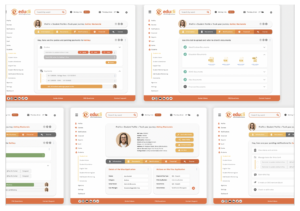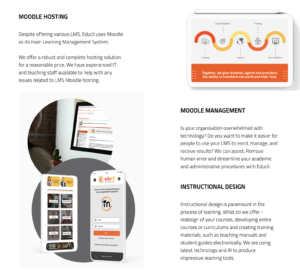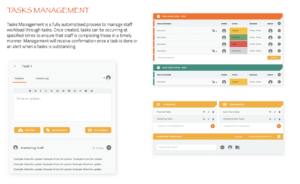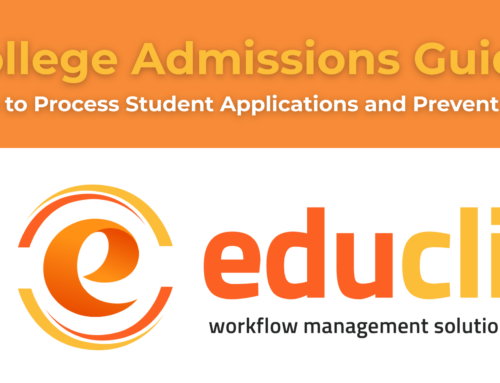Legislative changes that took effect on 1 September 2020 allow the National Regulator to request electronic student records from RTOs in a specific format. Providers who are still using paper forms to manage student information should formulate a strategy to move to digital records as soon as possible. By starting the shift to electronic record keeping immediately, RTOs can be ready for these future requirements.
Lack of access to information affecting Australian productivity
According to a study done among Australian companies, professionals lose two hours each week attempting to find the correct information internally, which has an effect on the level of service they provide to customers. The Workplace Productivity and Knowledge Management Survey, based on more than 2,000 responses from individuals working in mid-market and enterprise organisations.
According to the survey, 26% of people can’t find the information they need to do their jobs effectively on the systems they use, and 16% aren’t able to locate the right expert internally. Moreover, 26% are held back by information not being shared in a central place. Employees also say that a few experts within their organisation hold most of the information about the company (67%), but they can’t always contact them.
The survey explains that not being able to access the right information has impacted businesses in several ways:
- Employees working longer hours to complete work 44%
- Slow resolution of problems 38%
- Inaccurate information used 31%
In addition, the data was analysed into age groups and the size of the organisation. When asked which channel they would respond to the quickest, millennial workers said email (27%), followed by phone (43%), and then online chat (11%). On the other hand, baby boomers preferred phone (77%) followed by email (37%).
Large organisations have reported that the problem has become more severe as a result of their expansion. As a result of the expansion of the company, more than half of the employees (55%) have reported that it has become more challenging to speak with the appropriate experts within the company.

By utilising technology that facilitates collaboration, it is possible to make expert knowledge accessible to all employees at any given time. 82% of respondents believe that having access to this kind of technology would make them more effective in their work. When large organisations have these kinds of tools in place, they are able to guarantee that all of their employees have access to the appropriate information at the precise moment that they require it and that they are able to communicate with the appropriate subject matter expert through any channel.
“Organisations are getting more complex, with people often spread across many locations and time zones, making it harder for teams to collaborate, share, and learn from each other,” says Brendan Maree, vice president of Asia Pacific at 8×8. “In addition, only a small portion of a company’s staff holds the majority of the expertise, which, as this study shows, stands in the way of delivering excellent customer service,” he explains.
“One solution is to use a single cloud communications platform, enabling teams and individuals to collaborate much more efficiently since all employees can access information faster, no matter what channel they use,” Maree says. “This will also foster a culture of innovation, which can have a tremendous impact on job satisfaction and loyalty. Empowered employees feel a greater sense of ownership over the level of service they provide. These improved rates of satisfaction and loyalty flow through to customers.”
Digitisation of Records
Digitisation of Records is a process of converting any hardcopy, or paper-based records into digital format. Document scanning is essentially digitising paper documents. Through the use of a scanning device, hard copy documents are converted into electronic files for more efficient storage, security, and management. Digitisation benefits businesses as paper records are expensive to physically store, hard to track, easy to lose and time-consuming to create. Risks associated with managing your RTOs physical documents include theft, natural disasters, human error, lost records, and more.

Student Management System
A Student Management System (SMS) is a comprehensive software platform designed to facilitate the management and administrative processes of educational institutions. It streamlines the handling of student-related information, encompassing enrollment, attendance, grades, and performance tracking, as well as other critical data such as personal details and fee payments. By centralising these operations, an SMS enhances the efficiency of academic and administrative staff, offering a unified interface for managing student records, course scheduling, and communication with students and parents. This system not only optimises institutional operations but also improves the educational experience by providing students and educators with easy access to relevant information and resources, fostering a more organised and supportive learning environment. Examples of SMS – Axcelerate, Wisenet, Educli.
Learning Management System
A software application that assists in administration, documentation, tracking, and recording is known as a Learning Management System (LMS). This software application is also referred to as an LMS. In most cases, a learning management system (LMS) gives the user the ability to generate and distribute educational content, as well as to track and evaluate student participation and grades. Some systems may also provide students with the ability to use interactive features such as threaded discussion, video conferencing, and discussion forums. A learning management system (LMS) will not only provide valuable data statistics but will also make it possible to automate the process of grading and reporting. Having the capability to easily modify and reuse materials over time is one of the benefits that comes with using a learning management system (LMS). This is because the system is a central repository for all the content housed within. Examples of LMS – Moodle, Canvas, Learndash, BigBlueButton.
Staff training and development
This disruption of the vocational education and training sector by COVID-19 has taught us one thing, and that is that our trainers and administrative staff need to learn digital skills in order to use the technology that RTOs provide in order to be able to train them in the digital skills that they will need for the jobs that will emerge in the future as a result of the pandemic. The managers of RTOs should not make the assumption that the existing qualifications of their employees mean that they are also capable and literate in digital technology. For RTOs to remain relevant in their respective industries and to compete with non-traditional training providers, CEOs should consider how they can ensure that the digital skills of their RTO workforce are up-to-date and sufficient.

Why choose Educli for digital transformation?
Educli is at the forefront of bringing educational and organisational records into the digital era. We provide a suite of technological solutions and processes that are of significant benefit to both your members of staff and your customers. Transitioning from paper-based records to a digital system presents numerous advantages, including enhanced productivity, reduced costs and stress, better accessibility, and heightened data security. By replacing outdated manual systems with Educli’s efficient digital solutions, both administrative and training personnel can experience a significant boost in productivity through instant access to accurate information.
Educli’s innovation extends to task management, offering a fully automated system to oversee staff workloads efficiently. Tasks, once set up, recur at specified intervals, ensuring timely completion by staff. Managers benefit from real-time updates with confirmations upon task completion or alerts for outstanding tasks. This level of automation and oversight simplifies management processes, ensuring operational efficiency and productivity across the board.
Contact us for more information or to book an introduction session.





Leave A Comment